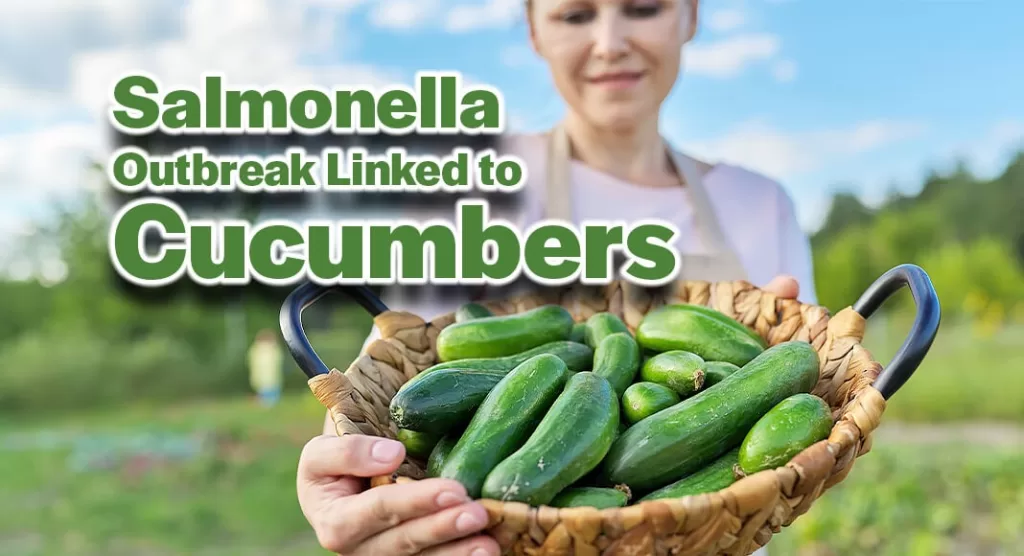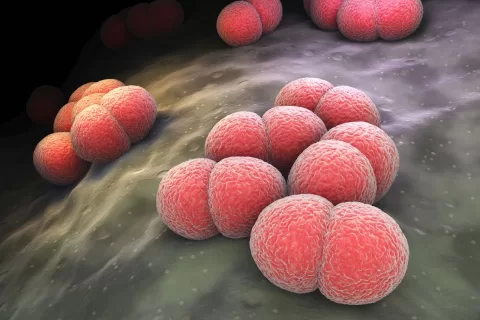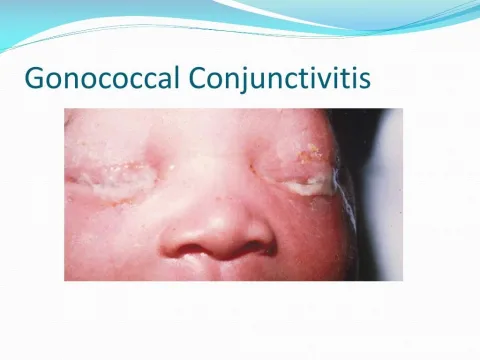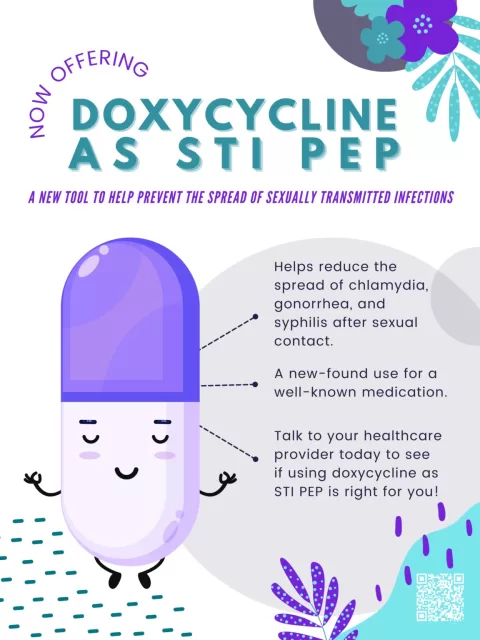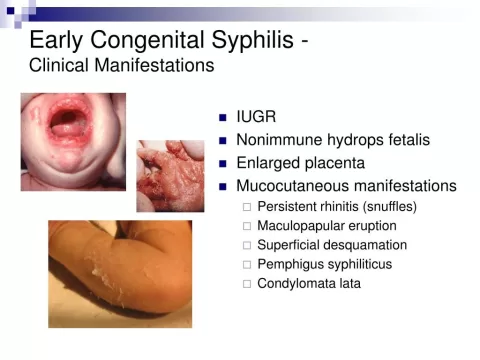The recent Salmonella outbreak linked to cucumbers has raised significant health concerns as federal health officials confirm that 68 individuals across 19 states have fallen ill. This foodborne illness, primarily associated with cucumbers imported from Mexico, has prompted SunFed Produce to issue a recall for the affected products. Between October 12 and November 26, 2024, these cucumbers were packaged in bulk containers under the SunFed label, igniting fears of widespread contamination. According to the CDC, most of those affected reported consuming these cucumbers shortly before their illness, highlighting the urgent need for Salmonella disease prevention measures. As the investigation unfolds, heightened awareness about Salmonella cucumbers recall procedures is crucial for safeguarding public health and preventing further outbreaks.
In light of the recent health crisis, the alarming situation concerning contaminated cucumbers has been spotlighted, with the Centers for Disease Control and Prevention (CDC) intensifying its response to a wave of foodborne illnesses. Cucumbers, a common salad staple, have emerged as a significant vehicle for the Salmonella bacteria, leading to widespread impacts on consumers across multiple states. The voluntary recall initiated by SunFed Produce aims to mitigate risks associated with this outbreak, emphasizing the importance of vigilance in food safety. With a notable number of individuals hospitalized due to the Salmonella infections, there is a pressing need for effective foodborne illness awareness and prevention strategies. As officials continue to trace the origins of these cases, the public is urged to stay informed about the ongoing Salmonella outbreak and to adhere to recommended food safety practices.
Understanding the Salmonella Outbreak Linked to Cucumbers
The recent Salmonella outbreak linked to cucumbers imported from Mexico has emerged as a significant concern for public health officials. As reported by the CDC, this outbreak has affected 68 individuals across 19 states, highlighting the severity and widespread nature of foodborne illnesses. This outbreak serves as a reminder of the importance of monitoring food safety practices throughout the supply chain, from farms to grocery stores. When it comes to cucumbers, even high-quality produce can become contaminated during the handling, packaging, or transportation process.
Investigations reveal that SunFed Produce, LLC has issued a voluntary recall of cucumbers sold between October 12, 2024, and November 26, 2024. The recalled products were packaged in bulk containers, making it crucial for consumers and retailers to check the labels for the SunFed brand or the sticker indicating “Agrotato, S.A. de C.V.” Proper traceability measures can help prevent further exposure to contaminated cucumbers and reduce the risk of illness.
The Impact of the Salmonella Cucumbers Recall
The recall of cucumbers by SunFed Produce is a direct response to the alarming 68 reported cases of Salmonella infections. Among the cases, health records indicate that a significant proportion —82%— of individuals interviewed consumed cucumbers prior to developing symptoms. This high percentage underscores the need for rapid response and effective communication strategies to inform consumers about potentially dangerous food products. Retailers must act to remove recalled products from shelves quickly to minimize the risk of exposure.
Additionally, this incident sheds light on the broader implications of food safety regulations and recalls. The CDC and FDA play critical roles in monitoring foodborne illnesses and initiating recalls. Their collaborative efforts aim to ensure that products that may harm consumers are swiftly identified and removed from circulation. This Salmonella outbreak signals the necessity for individuals to remain vigilant and informed about food recalls, as awareness can significantly mitigate risks associated with foodborne diseases.
Foodborne Illnesses: The Role of Cucumbers
Foodborne illnesses continue to pose a public health challenge, and cucumbers, in particular, have been known to be vehicles for pathogens like Salmonella. This bacterial infection can lead to serious gastrointestinal issues, but many affected people do not seek medical care, often suffering from mild symptoms at home. The recent outbreak has shown how easily foodborne pathogens can spread through popular vegetables, affecting various communities, especially in assisted living facilities and schools, where vulnerable populations may reside.
The Centers for Disease Control and Prevention provides guidelines to help prevent foodborne illnesses, including the importance of safe food handling, proper cooking temperatures, and thorough washing of produce. By enforcing these preventive measures, both producers and consumers contribute to reducing the incidence of Salmonella infections linked to cucumbers and other fresh produce.
CDC’s Role in Tracking Salmonella Disease Outbreaks
The CDC plays a pivotal role in tracking and managing Salmonella outbreaks. Health officials utilize epidemiological data to identify clusters of illness, such as the six identified during this outbreak at different establishments where cucumbers were served. This data collection is essential for understanding how outbreaks evolve and for implementing timely interventions. In this case, the CDC’s data indicated specific areas with higher rates of illness, guiding local health departments in their response efforts.
Moreover, the collaboration between local health departments and federal agencies like the CDC and FDA allows for a more coordinated approach to combating foodborne illnesses. By sharing information and resources, these agencies ensure that potential outbreaks are addressed promptly, and preventive measures are put in place to protect public health. The rapid identification of the Salmonella outbreak linked to cucumbers is an example of effective monitoring and response.
Preventing Salmonella Diseases Linked to Cucumbers
Preventing Salmonella diseases requires a multifaceted approach involving various stakeholders, including farmers, processors, retailers, and consumers. Educating consumers on proper food safety practices is vital to reduce the risk of infection. This includes washing cucumbers thoroughly before consumption and practicing good hygiene, such as washing hands before handling food. Public health campaigns can help raise awareness about foodborne illnesses and the frequency of Salmonella infections associated with fresh produce.
Furthermore, food producers must adopt rigorous safety standards throughout the growing and handling processes. This includes adhering to regulations regarding water quality, soil health, and sanitation practices. When each stage of production integrates safety into its operations, the risk of contamination can be significantly reduced. Overall, collective efforts in Salmonella disease prevention are essential for safeguarding public health against outbreaks linked to cucumbers and other fresh produce.
Key Statistics from the Current Salmonella Outbreak
The current Salmonella outbreak has reported 68 confirmed cases across 19 states, with a noticeable concentration in Montana, Colorado, and Oregon. The median age of infected individuals is 27, with a predominance of females affected. This demographic information aids in understanding the scope of the outbreak and provides insight into how the disease may spread through specific populations.
Data collection and analysis conducted by the CDC reveal that 18 of the 50 hospitalized patients have reported recent cucumber consumption. Such statistics emphasize the importance of ongoing surveillance and the value of consumer interviews in determining outbreak sources. It also highlights how essential it is for both health departments and individuals to stay informed about potential risks related to foodborne illnesses.
Community Efforts to Address Salmonella Risks
Community engagement plays a critical role in addressing Salmonella risks associated with foodborne illnesses. Local health departments can educate citizens about safe food practices and the implications of food recalls like the one involving SunFed Produce cucumbers. Engaging the community encourages proactive measures, such as reporting cases of foodborne illness to health authorities. This input helps strengthen the tracking and responsiveness of public health systems.
Moreover, local businesses and restaurants must collaborate with health departments to ensure compliance with food safety regulations. Workshops and training sessions can equip them with the knowledge needed to prepare and serve food safely, protecting their patrons from potential illness. Building a strong network within the community fosters a culture of health awareness and safety, which is essential for preventing future Salmonella outbreaks.
Navigating Food Safety Regulations During Recalls
Navigating food safety regulations during recalls is essential for consumers and producers alike. Understanding the steps to take when a recall occurs not only helps to prevent illness but also facilitates a quick resolution of problems within the food supply chain. Consumers should stay informed about recall notifications and actively check for affected products in their homes.
For businesses, ensuring compliance with food safety regulations set forth by the FDA and CDC is crucial. Implementing robust tracking systems enables quicker identification of food products involved in an outbreak, facilitating timely recalls and protecting public health. Adhering to these regulations minimizes the risk of Salmonella and other foodborne illnesses linked to cucumbers and similar products.
The Importance of Labeling in Food Safety
In the context of food recalls, labeling plays a vital role in ensuring consumer safety. Accurate labels provide essential information about product sources and corresponding recall notices, allowing consumers to make informed decisions. For the current Salmonella outbreak linked to cucumbers, recognizing packaging and labeling details is critical to identifying potentially contaminated products.
Effective food labeling not only aids consumers but also supports producers in complying with regulations. Clear and detailed labels assist health officials in tracing outbreak sources efficiently. Ensuring that labeling meets safety standards is a powerful tool for mitigating foodborne illness risks linked to cucumbers and maintaining public trust in food supply.
Frequently Asked Questions
What is the current Salmonella outbreak linked to cucumbers about?
The recent Salmonella outbreak linked to cucumbers has sickened 68 people across 19 states, as reported by the CDC. The outbreak is primarily associated with cucumbers imported from Mexico, specifically from SunFed Produce, LLC, and has prompted a recall of cucumbers sold between October 12, 2024, and November 26, 2024.
How did the Salmonella outbreak from cucumbers affect consumers?
Consumers have been impacted by the Salmonella outbreak from cucumbers, with 68 reported illnesses and 18 hospitalizations. Most affected individuals reported eating cucumbers in the days leading up to their illness, emphasizing the importance of being cautious regarding foodborne illnesses associated with cucumbers.
What measures are being taken to address the Salmonella cucumbers recall?
In response to the Salmonella cucumbers recall, the FDA is working with SunFed Produce, LLC, to track and manage the distribution of contaminated products. This includes assessing whether additional downstream recalls are necessary to protect public health.
What are the symptoms of Salmonella foodborne illness from cucumbers?
Symptoms of Salmonella foodborne illness associated with cucumbers typically include diarrhea, fever, and abdominal cramps, which usually begin six hours to six days after infection. It’s important to seek medical attention if severe symptoms occur.
How can consumers prevent Salmonella disease from cucumbers?
Consumers can prevent Salmonella disease from cucumbers by thoroughly washing cucumbers before eating, avoiding contaminated products, and keeping track of recalls. It’s also crucial to pay attention to health advisories from the CDC regarding foodborne illness outbreaks.
Where were the cucumbers linked to the Salmonella outbreak sold?
Cucumbers linked to the current Salmonella outbreak were sold in bulk cardboard containers with a SunFed label, primarily at various retail stores from October 12, 2024, to November 26, 2024. Consumers should check retailers for information on the recall.
What states have been most affected by the Salmonella outbreak linked to cucumbers?
Montana has reported the highest number of cases in the Salmonella outbreak linked to cucumbers, with 16 cases. Other affected states include Colorado with 8 cases, Oregon with 7, Texas with 5, and South Dakota with 4 cases, representing a widespread issue across the country.
What steps should someone take if they suspect they have Salmonella from cucumbers?
If someone suspects they have contracted Salmonella from cucumbers, they should seek medical advice immediately, report their illness to health authorities, and refrain from preparing food for others to prevent further spread of the illness.
| Key Point | Details |
|---|---|
| Salmonella Outbreak Cases | 68 cases reported across 19 states |
| Cucumber Source | Cucumbers imported from Mexico |
| Recall Announcement | SunFed Produce, LLC recalled cucumbers sold from October 12 to November 26, 2024 |
| Hospitalizations | 18 out of 50 infected people have been hospitalized, no deaths reported |
| Specific States Affected | Montana (16 cases), Colorado (8 cases), Oregon (7 cases) |
| Affected Locations | Identified illness sub-clusters at two assisted living facilities, three school districts, and one restaurant |
Summary
The recent Salmonella outbreak linked to cucumbers has raised significant public health concerns as it has affected 68 individuals across 19 states. Prompt action from health officials has led to a recall of the implicated produce, ensuring consumer safety. No fatalities have been reported, but the outbreak highlights the importance of ongoing monitoring and response to foodborne illnesses.
The content provided on this blog (e.g., symptom descriptions, health tips, or general advice) is for informational purposes only and is not a substitute for professional medical advice, diagnosis, or treatment. Always seek the guidance of your physician or other qualified healthcare provider with any questions you may have regarding a medical condition. Never disregard professional medical advice or delay seeking it because of something you have read on this website. If you believe you may have a medical emergency, call your doctor or emergency services immediately. Reliance on any information provided by this blog is solely at your own risk.



